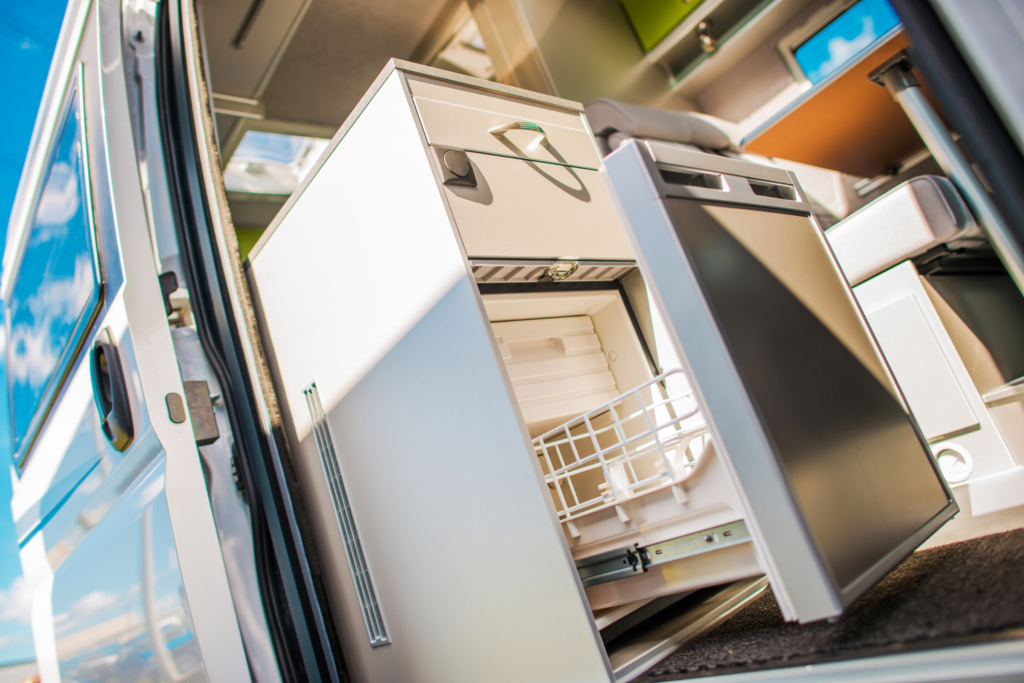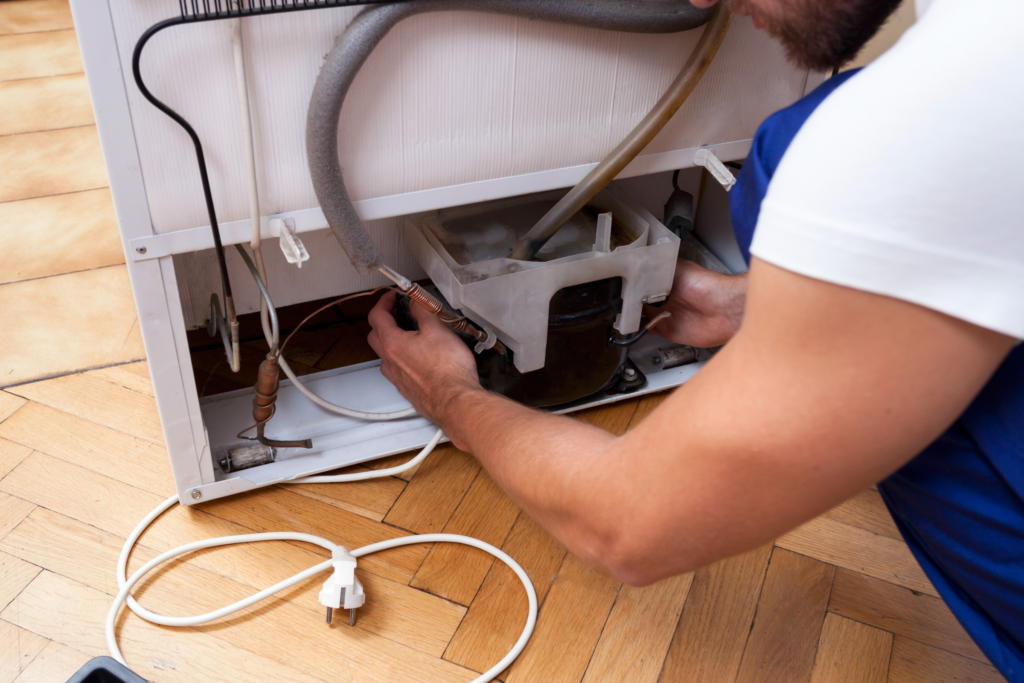RV Fridge Keeps Blowing Fuses? (Why and how to fix it)
A reliable fridge is a must when going out in your RV, so much so that should it be faulty and you’re unable to use it because it keeps popping fuses, you may have to delay your trip. The good news is that some underlying faults causing the fuses to blow may be fixed easily and quickly enough for you to still go on your trip in time.
If the RV fridge keeps blowing fuses and not cooling, then there is likely a short on the circuit board or heater element or even a faulty 12V fan.
Read on to find out where to look and how you may be able to fix the problems.
Why Does the RV fridge keep blowing fuses? (And Suggested Fixes)
AC Fuse Blowing
#1. A Short or low resistance of the heater element(s). The high current draw that happens as a result of the short causes the fuse to blow. The short can be between the heater element and its casing.
The heater element resistance can also be lower than expected, causing the fuse to blow and the fridge to stop cooling.
Checks
Inspect the wires connecting the circuit board to the heating elements for any burn marks. Is the insulation intact?
A break in the insulation can result in a short between adjacent wire(s) or with the ground connection or chassis popping the fuse.
Tests
RV Fridge Heating Element Resistance
Note: Make sure to disconnect the RV fridge from the wall outlet to avoid being electrocuted!
To test for a failure in the heater elements, consult the service manual for the recommended ohm meter value (usually about 50 ohms) of the heater elements.
Next, use an ohm meter to measure the heater element resistance by connecting the meter leads to the heater element connections.
Compare the service manual value with the ohm meter reading. A significantly lower reading (resistance) will result in a larger current draw than the fuse can handle, leading to blowing the fuse.
Also, measure the resistance between the heating element leads and the ground or chassis.
The reading should be an open circuit or infinity. A non-infinity reading indicates that the heating element is shorting to the ground.
Fix: If the wires are damaged, replace them with new wires of the same type and rating.
The RV fridge probably has a bad element if the heater element resistance values are significantly lower. Replace it with another of the type recommended by the manufacturer
Consult an RV fridge technician to confirm and, if so, replace the element(s).
12V Blade type fuse
#2. A short or failure in the 12V wiring. If there is a short in the 12V wiring or circuit board, the 12V fuse will blow.
The short may be caused by a failing component, an unintended short by metal tools or loose wiring as you conduct maintenance on the circuit board, or a faulty relay.
The circuit board relay does the actual switching of 120V AC to the heating element.
The 12V fuse protects the wiring to the control panel and propane valve 12V circuits.
Checks
Are the control panel controls on the fridge working? If not, then the fuse may have popped. Inspect the back of the circuit board where the relay is soldered for burn marks. This can be a sign of a bad relay.
Quick Test for a Faulty DC board
You can also test the DC control board by disconnecting all the connectors off the DC board and leaving the DC supply only connected to the control board.
Fix: Replace the fuse that keeps blowing (with all the connections removed).
Does the fuse still blow? If so, there is a short on the board, and you probably need to order a replacement board.
#3. Fault with the 12V Fan
The 12V fuse can sometimes blow because the fan is drawing a large current. This may be because the fan rotation is restricted by dust or other and drawing excessive current in an attempt to rotate.
Checks
Inspect the fan for a buildup of dust and other debris.
Quick Test for a Faulty 12V Fan
Does the replacement fuse blow when the fan kicks in?
If so, disconnect the fan, and replace the fuse to test if the fuse still blows. If it remains intact, then you probably need to replace the fan.
Fix: Clean the fan as best you can. If the problem persists, replace the fan.
You may also be interested in this post: Should you transport a fridge or freezer on its back or side?

Your RV fridge is blowing fuses? Switch to LP
When your RV refrigerator blows a fuse because of faulty heating elements, you may be able to get it to work by switching to the Liquid Propane (LP) system.
Always run the fridge for several hours before you start to use it, as it takes time to cool. Additionally, the refrigerator should be operated when in a level position else you risk damage to its cooling system.
RV refrigerator Fuse Location and types
Depending on the type and model of the RV fridge, there might be two or more fuses (Always consult the service manual):
- a 5 or 8-amp, 120 VAC glass fuse to protect the wiring to the heater elements, and
- a 3 or 5-amp 12V blade-type fuse to protect the control panel and propane valve 12V circuits.
Your RV fridge’s amp ratings may differ, so always consult the fridge’s service manual.
Fuse Location
These fuses can usually be found on the control board at the back of the fridge.

How to prevent your RV fridge from blowing fuses
Once you’ve identified the problem and fixed it, how do you keep from blowing fuses in the future?
Balance RV circuit loads
If you have your fridge and many other appliances on the same circuit, it can stress the system. Try to switch a few appliances to a different circuit. This will also make it easier to identify the problem when a fuse blows, as there are fewer appliances to check.
Reduce appliance load
The fewer appliances you have plugged in, the less chance there is to blow a fuse. If you don’t want to remove any appliances, keep them unplugged whenever possible.
Perform regular electrical inspections
If you keep an eye on your RV’s electrical system, you can ensure that it is operating at peak efficiency. When you notice problems such as old wiring, you can replace them before it becomes a problem.
Summary of RV fridge keeps blowing fuses
RV fridge fuses protect wiring connecting to the heater elements, the control panel, and the 12V propane valve.
If the fuses are blowing, there is likely a short in the heater elements, their wiring, the 12V control panel, tropane circuit wiring, or even a faulty 12V fan.
You can consult a qualified RV technician or if you have the skills, you can inspect the circuits with the help of a service manual and an ohm meter to confirm and fix what may be causing the fuses to blow.
Why does my fridge fuse keep blowing?
Your fridge fuse may keep blowing because of faulty wiring, a short in the circuit board, or a faulty fan.
What should I do if an appliance continuously blows a fuse?
Try to identify the cause of the problem. Inspect the circuit board, fans, and wiring. If you can identify the problem, take it to a professional or try to fix it yourself.
Why does my Norcold fridge keep blowing the 5 amp fuse?
The most likely cause is a faulty circuit board, connector, or fan. To test the board, remove everything from it except the power supply, element connections, and the P connections. Then replace the fuse to see if it still blows.
Why does my 15 amp fuse keep blowing in my RV?
The 15 amp fuse can blow because of a shortage in the heating element, faulty connections, or improperly installed components.
Let Us Know How We’re Doing!
Did this expertly prepared resource answer your question?
Do you have another question about home maintenance, home improvement projects, home appliance repair, or something else?
Get more information, send in questions and keep the discussion going by contacting the I’ll Just Fix It Myself company customer service team at at 1-800-928-1490 or Email us at [email protected]
